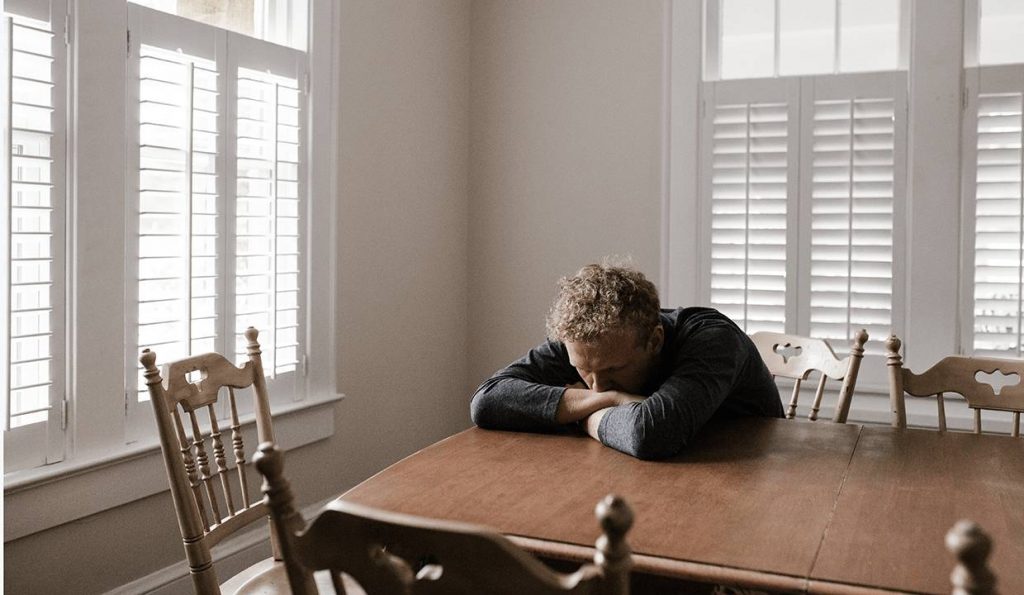After months of living in a place she can finally call her own, Candace finds herself sitting in front of her dining room table stressfully looking through the stack of utility bills mailed to her over the past several weeks. She just lost her job and is anxiously thinking about how to pay these charges by the end of the month.
Apart from that, she has been getting just three hours of sleep the past several weeks because of the plethora of outside noises hounding her every night—the arguing married couple next door, the construction men doing overtime work two blocks away, and the neighbors who just love karaoke so much.
Paranoia also creeps in before bedtime after hearing reports about cases of burglaries in nearby houses, having her heart pound every time she tries to go to sleep.
Because of all these, Candace started doubting herself, thinking whether she was right in buying the house where she lives now. The thought circles around her head everyday, causing her to be numb from sadness.
One of the many factors that can affect our mental health is housing.

In celebration of Mental Health Awareness Month this May, let us discover how our housing situations can deeply cloud and darken our mental soundness and what we can do to ease it.
Addressing the situation
Housing problems can affect our mental health in different ways. Stress, anxiety, and depression are some common mental issues that you can face if you are struggling in the place you live.
According to a national survey by British charity Shelter, one in three adults suffer from stress and depression due to concerns about housing costs. Additionally, one in four adults say that housing costs cause arguments with their partner and other family members. Witnessing or experiencing conflict can trigger or aggravate a number of fears, according to The Conflict Resolution Centre in the UK.
Moreover, sleep problems can also be experienced when you live in places that are noisy and uncomfortable. Factors that can contribute to this include an overcrowded home, a rowdy neighborhood, and, related to the above mentioned issue, stress or worries about housing costs.
One can also experience depression or a low self-esteem when they move a lot to different living spaces as this causes a drift in relationships and a feeling of being less secure. In a 2016 article published in The Guardian, it was reported that children who have lived in temporary homes for more than a year are three times more likely to experience mental health problems.
Home is where the mind is
A home should always be a safe space where your mind can relax and be at ease. If the place is one of the primary reasons that gives you stress and causes your depression, can you really call it a home?
Here are some things that you can do so your mental health can find the least of worries in your present or future housing situations.
• Do your research. Buying yourself a home is one major decision you can make in your life and you cannot simply choose on just because you like its overall aesthetics. Research on the house’s location, specifically in the neighborhood it is located, and see if it is a safe place to live in. Check if the community has some news reports about them, whether good or bad. You can even do an ocular and see for yourself how the neighborhood moves about. Also, ask some people around about their living experiences in the place. Doing research can save you the trouble of experiencing the bad housing situations that can affect your mental health in the long run.
• Mindful meditation. Are those housing costs clouding your mind? Before dealing with them, make sure to reconnect with yourself and clear your mind from negativity by practicing meditation. This form of relaxation technique allows you to realize what your needs are, may it be physical or emotional. Relax, one breath at a time.
• Keep it spick and span. Keep those dusts away and clean your living space. Being in a poor, damp, uncomfortable house can lead to physical illnesses which, in turn, can affect your mental health. Cleaning can help veer your mind away from the negative housing situations clouding your head.
• Develop a good relationship with your neighbors. The next-door neighbors might be the reason why you’re not sleeping that well. Their constant arguing, their barking dogs, or their love for belting out to love songs, among others, can disrupt your sleep which may lead to more mental health issues. If you just moved in, introduce yourself to them and develop a good relationship with them. Developing a good relationship with your neighbor can help them be mindful of the noise they might create at night, helping you get back on track with your sleep.

• Get professional help. Keeping your negative thoughts all by yourself can damage your mental health more. Consider getting professional help. Mental Health America cites reasons why anyone with mental health problems can benefit from talking to a mental health professional. They can come up with different problem solving techniques, help you feel stronger amidst challenges, help you change behaviors that hold you back, and many more. So, amidst problems with housing, check up with your nearby mental health professional who can help you get through these tough times.
Housing is just one of many factors that can contribute to our mental health stability. As we celebrate Mental Health Awareness Month, may we consider other factors in life and see how they affect our minds and learn how we can support ourselves in our journey toward mindfulness, self-love, and self-compassion. Always remember: you are valid. You matter. You deserve to live your best life.
